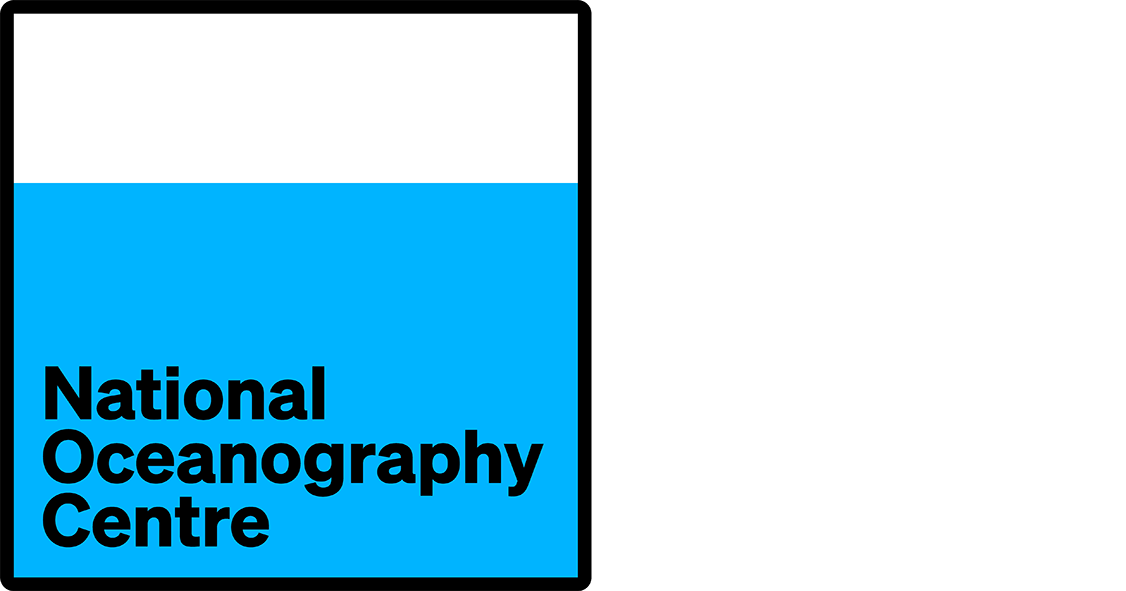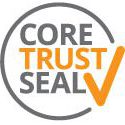Metadata Report for BODC Series Reference Number 2048780
Metadata Summary
Problem Reports
Data Access Policy
Narrative Documents
Project Information
Data Activity or Cruise Information
Fixed Station Information
BODC Quality Flags
SeaDataNet Quality Flags
Metadata Summary
Data Description |
|||||||||||||||||||||||||
|
|||||||||||||||||||||||||
Data Identifiers |
|||||||||||||||||||||||||
|
|||||||||||||||||||||||||
Time Co-ordinates(UT) |
|||||||||||||||||||||||||
|
|||||||||||||||||||||||||
Spatial Co-ordinates | |||||||||||||||||||||||||
|
|||||||||||||||||||||||||
Parameters |
|||||||||||||||||||||||||
|
|||||||||||||||||||||||||
Definition of BOTTFLAG | |||||||||||||||||||||||||
| BOTTFLAG | Definition |
|---|---|
| 0 | The sampling event occurred without any incident being reported to BODC. |
| 1 | The filter in an in-situ sampling pump physically ruptured during sample resulting in an unquantifiable loss of sampled material. |
| 2 | Analytical evidence (e.g. surface water salinity measured on a sample collected at depth) indicates that the water sample has been contaminated by water from depths other than the depths of sampling. |
| 3 | The feedback indicator on the deck unit reported that the bottle closure command had failed. General Oceanics deck units used on NERC vessels in the 80s and 90s were renowned for reporting misfires when the bottle had been closed. This flag is also suitable for when a trigger command is mistakenly sent to a bottle that has previously been fired. |
| 4 | During the sampling deployment the bottle was fired in an order other than incrementing rosette position. Indicative of the potential for errors in the assignment of bottle firing depth, especially with General Oceanics rosettes. |
| 5 | Water was reported to be escaping from the bottle as the rosette was being recovered. |
| 6 | The bottle seals were observed to be incorrectly seated and the bottle was only part full of water on recovery. |
| 7 | Either the bottle was found to contain no sample on recovery or there was no bottle fitted to the rosette position fired (but SBE35 record may exist). |
| 8 | There is reason to doubt the accuracy of the sampling depth associated with the sample. |
| 9 | The bottle air vent had not been closed prior to deployment giving rise to a risk of sample contamination through leakage. |
Definition of Rank |
|
|
Problem Reports
No Problem Report Found in the Database
Data Access Policy
Open Data
These data have no specific confidentiality restrictions for users. However, users must acknowledge data sources as it is not ethical to publish data without proper attribution. Any publication or other output resulting from usage of the data should include an acknowledgment.
If the Information Provider does not provide a specific attribution statement, or if you are using Information from several Information Providers and multiple attributions are not practical in your product or application, you may consider using the following:
"Contains public sector information licensed under the Open Government Licence v1.0."
Narrative Documents
Niskin Bottle
The Niskin bottle is a device used by oceanographers to collect subsurface seawater samples. It is a plastic bottle with caps and rubber seals at each end and is deployed with the caps held open, allowing free-flushing of the bottle as it moves through the water column.
Standard Niskin
The standard version of the bottle includes a plastic-coated metal spring or elastic cord running through the interior of the bottle that joins the two caps, and the caps are held open against the spring by plastic lanyards. When the bottle reaches the desired depth the lanyards are released by a pressure-actuated switch, command signal or messenger weight and the caps are forced shut and sealed, trapping the seawater sample.
Lever Action Niskin
The Lever Action Niskin Bottle differs from the standard version, in that the caps are held open during deployment by externally mounted stainless steel springs rather than an internal spring or cord. Lever Action Niskins are recommended for applications where a completely clear sample chamber is critical or for use in deep cold water.
Clean Sampling
A modified version of the standard Niskin bottle has been developed for clean sampling. This is teflon-coated and uses a latex cord to close the caps rather than a metal spring. The clean version of the Levered Action Niskin bottle is also teflon-coated and uses epoxy covered springs in place of the stainless steel springs. These bottles are specifically designed to minimise metal contamination when sampling trace metals.
Deployment
Bottles may be deployed singly clamped to a wire or in groups of up to 48 on a rosette. Standard bottles and Lever Action bottles have a capacity between 1.7 and 30 L. Reversing thermometers may be attached to a spring-loaded disk that rotates through 180° on bottle closure.
Turner Designs Trilogy Fluorometer
The Trilogy Laboratory Fluorometer is a compact laboratory instrument for making fluorescence, absorbance and turbidity measurements using the appropriate snap-in Application Module.
The following snap-in application modules are available:
| Application | Minimum Detection Limit | Linear Range | Comments | |
|---|---|---|---|---|
| Ammonium | 0.05µmol | 0-50µmol | ||
| CDOM/FDOM | 0.1 ppb | 0 - 1000 ppb | Quinine sulphate | |
| Chlorophyll-a extracted (acidification) | 0.025 µg l-1 | 0-300 µg l-1 | ||
| Chlorophyll-a extracted (non-acidification) | 0.025 µg l-1 | 0-300 µg l-1 | ||
| Chlorophyll in vivo | 0.025 µg l-1 | 0-300 µg l-1 | ||
| Fluorescein dye standard range | 0.01 ppb | 0-200 ppb | ||
| Fluorescein dye extended range | 0.75 ppb | 0-8000 ppb | Minicell adapter P/N 8000-936 and P/N 7000-950 required | |
| Histamine | 0.001 ppm | 0-100 ppm | ||
| Histamine (PTSA) | 0.5 ppm | 0-2,000 ppm | ||
| Nitrate (absorbance) | 0.04 mg l-1 | 0 - 14 mg l-1 | ||
| Crude Oil | 0.2 ppb | 0 - 2,000 ppb | Quinine sulphate | |
| Refined Oil | 0.25 ppb | 0 - 6,000 ppb Napthalene | 1,5 Naphthalene disulfonic disodium salt | |
| Optical Brighteners | 1 ppb | 0 - 10,000 ppb | Quinine sulphate | |
| Phosphate (absorbance) | 1 µg l-1 | 0 - 930 µg l-1 | ||
| Phycocyanin (freshwater) | 150 cells ml-1 | 0 - 150,000 cells ml-1 | ||
| Phycoerythrin (marine) | 150 cells ml-1 | 0 - 150,000 cells ml-1 | ||
| Pyrene tetra sulfonic acid (PTSA) | 0.1 ppb | >10,000 ppb | ||
| Rhodamine WT | 0.01 ppb | 0 - 500 ppb | ||
| Silicate (absorbance) | 3 µg l-1 | 0 - 3000 µg l-1 | ||
| Turbidity | 0.05 NTU | 0 - 1000 NTU |
For extracted chlorophyll measurements using EPA 445, Trilogy automatically calculates the concentration using the filtered and solvent volumes. The turbidity modules use an IRLED with a wavelength of 860nm to meet ISO 7027 standards for turbidity water quality measurements.
Specifications
| Power | 100 to 240VAC Universal Power Supply, Output 12VDC 0.84A Max |
|---|---|
| Operating Temperature | 15-40 °C |
| Size | 32.82 cm depth, 26.52 cm width, 21.39 height |
| Weight | 3.65 kg |
| Readout | Direct concentration (µg l-1, ppb etc.) |
| Light source and detector | Light emitting diode and photodiode |
| Data output | 100% ASCII format through a 9-pin RS-232 serial cable at 9600 baud |
| PC operating system | Windows 98 or later |
Further details can be found in the manufacturer's specification sheet.
DY130 CTD Bottle and Underway Chlorophyll Sample Processing
Originator's Protocol for Data Acquisition and Analysis
Chlorophyll samples were taken from both CTD (Whittard canyon, PAP-SO and glider sites) and underway systems. Where possible samples were taken at pre-dawn and dawn to avoid quenching in the TSG and CTD fluorometers with which the samples will be compared. They were kept cool and dark and were filtered as soon as possible. CTD samples were 500ml volumes and underway 250ml volumes to ensure sufficient chlorophyll in samples. Samples were kept cool and dark until shaken, measured and filtered through six port filter rig onto 25mm GFFs. Each 500ml sample was filtered through a GFF 25mm diameter, extracted in 90 % acetone for 22-24 hours at 4 degC and measured on a Trilogy Turner Designs 7200 lab fluorometer calibrated with a pure chlorophyll-a standard (Sigma, UK) and set up following the method of Welschmeyer (1994). Filters for total and size fractionated CTD bottle samples are Total (GFF), and size fractions, 20 micro m, 10 micro m, 0.2 micro m. Data have been adjusted for blanks.
References cited
Welschmeyer, Nicholas A., 1994. Fluorometric analysis of chlorophyll a in the presence of chlorophyll b and pheopigments, Limnology and Oceanography, 39, doi: 10.4319/lo.1994.39.8.1985.
Instrument Description
Turner Designs Trilogy fluorometer
DY130 Cruise report
Further information can be found in the DY130 Cruise report.
BODC Data Processing Procedures
Data were submitted in 3 .csv spreadsheets containing chlorophyll samples and size fractionated chlorophyll samples from CTDs and underway on cruise DY130. Additional metadata such as station, CTD cast number and CTD bottle number were also included in the file. The data were reformatted and assigned BODC parameter codes. Quality control checks were made and BODC flags applied where appropriate. The data were then loaded into the BODC database using established BODC data banking procedures. Details of mapping between originator's channels and BODC's parameter codes are given below:
| Originator's Parameter | Unit | BODC Parameter Code | BODC Unit | Comments |
|---|---|---|---|---|
| Chlorophyll (mg m-3) [Dil x (R)adj x (Fl-Bl) x (Ace/Sampl) | mg/m3 | CPHLFLP1 | mg/m3 | Total GFF, for both CTD and underway samples |
| Chlorophyll (mg m-3) [Dil x (R)adj x (Fl-Bl) x (Ace/Sampl) | mg/m3 | SCHLFLPQ | mg/m3 | Size fraction 20 micro m |
| Chlorophyll (mg m-3) [Dil x (R)adj x (Fl-Bl) x (Ace/Sampl) | mg/m3 | SCHLFLPO | mg/m3 | Size fraction 10 micro m |
| Chlorophyll (mg m-3) [Dil x (R)adj x (Fl-Bl) x (Ace/Sampl) | mg/m3 | CPHLFLP5 | mg/m3 | Size fraction 0.2 micro m |
Project Information
Marine LTSS: CLASS (Climate Linked Atlantic Sector Science)
Introduction
CLASS is a five year (2018 to 2023) programme, funded by the Natural Environment Research Council (NERC) and extended until March 2024.
Scientific Rationale
The ocean plays a vital role in sustaining life on planet Earth, providing us with both living resources and climate regulation. The trajectory of anthropogenically driven climate change will be substantially controlled by the ocean due to its absorption of excess heat and carbon from the atmosphere, with consequent impacts on ocean resources that remain poorly understood. In an era of rapid planetary change, expanding global population and intense resource exploitation, it is vital that there are internationally coordinated ocean observing and prediction systems so policy makers can make sound evidence-based decisions about how to manage our interaction with the ocean. CLASS will underpin the UK contribution to these systems, documenting and understanding change in the marine environment, evaluating the impact of climate change and effectiveness of conservation measures and predicting the future evolution of marine environments. Over the five-year period CLASS will enhance the cost-effectiveness of observing systems by migrating them towards cutting edge autonomous technologies and developing new sensors. Finally, CLASS will create effective engagement activities ensuring academic partners have transparent access to NERC marine science capability through graduate training partnerships and access to shipborne, lab based and autonomous facilities, and modelling capabilities.
Data Activity or Cruise Information
Data Activity
| Start Date (yyyy-mm-dd) | 2021-04-06 |
| End Date (yyyy-mm-dd) | 2021-04-06 |
| Organization Undertaking Activity | National Oceanography Centre, Southampton |
| Country of Organization | United Kingdom |
| Originator's Data Activity Identifier | DY130_CTD_DY130-057 |
| Platform Category | lowered unmanned submersible |
BODC Sample Metadata Report for DY130_CTD_DY130-057
| Sample reference number | Nominal collection volume(l) | Bottle rosette position | Bottle firing sequence number | Minimum pressure sampled (dbar) | Maximum pressure sampled (dbar) | Depth of sampling point (m) | Bottle type | Sample quality flag | Bottle reference | Comments |
|---|---|---|---|---|---|---|---|---|---|---|
| 1945316 | 1 | 4851.30 | 4852.30 | 4756.70 | Niskin bottle | No problem reported | ||||
| 1945319 | 2 | 4851.60 | 4852.90 | 4757.20 | Niskin bottle | No problem reported | ||||
| 1945322 | 3 | 3050.60 | 3051.70 | 3003.30 | Niskin bottle | No problem reported | ||||
| 1945325 | 4 | 3049.90 | 3050.90 | 3002.70 | Niskin bottle | No problem reported | ||||
| 1945328 | 5 | 2537.10 | 2538.10 | 2500.90 | Niskin bottle | No problem reported | ||||
| 1945331 | 6 | 2537.90 | 2538.60 | 2501.60 | Niskin bottle | No problem reported | ||||
| 1945334 | 7 | 1825.20 | 1825.80 | 1802.10 | Niskin bottle | No problem reported | ||||
| 1945337 | 8 | 1825.40 | 1826.50 | 1802.80 | Niskin bottle | No problem reported | ||||
| 1945340 | 9 | 809.50 | 810.10 | 801.40 | Niskin bottle | No problem reported | ||||
| 1945343 | 10 | 809.40 | 810.20 | 801.40 | Niskin bottle | No problem reported | ||||
| 1945346 | 11 | 758.70 | 759.50 | 751.40 | Niskin bottle | No problem reported | ||||
| 1945349 | 12 | 759.20 | 759.60 | 751.60 | Niskin bottle | No problem reported | ||||
| 1945352 | 13 | 458.50 | 459.30 | 454.50 | Niskin bottle | No problem reported | ||||
| 1945355 | 14 | 458.70 | 459.40 | 454.60 | Niskin bottle | No problem reported | ||||
| 1945358 | 15 | 204.70 | 205.20 | 203.20 | Niskin bottle | No problem reported | ||||
| 1945361 | 16 | 204.70 | 205.40 | 203.20 | Niskin bottle | No problem reported | ||||
| 1945364 | 17 | 53.00 | 53.80 | 52.90 | Niskin bottle | No problem reported | ||||
| 1945367 | 18 | 53.30 | 54.00 | 53.10 | Niskin bottle | No problem reported | ||||
| 1945370 | 19 | 32.70 | 34.20 | 33.00 | Niskin bottle | No problem reported | ||||
| 1945373 | 20 | 32.80 | 34.10 | 33.00 | Niskin bottle | No problem reported | ||||
| 1945376 | 21 | 12.90 | 13.50 | 13.00 | Niskin bottle | No problem reported |
Please note:the supplied parameters may not have been sampled from all the bottle firings described in the table above. Cross-match the Sample Reference Number above against the SAMPRFNM value in the data file to identify the relevant metadata.
Related Data Activity activities are detailed in Appendix 1
Cruise
| Cruise Name | DY130 |
| Departure Date | 2021-03-25 |
| Arrival Date | 2021-04-14 |
| Principal Scientist(s) | Susan E Hartman (National Oceanography Centre, Southampton) |
| Ship | RRS Discovery |
Complete Cruise Metadata Report is available here
Fixed Station Information
No Fixed Station Information held for the Series
BODC Quality Control Flags
The following single character qualifying flags may be associated with one or more individual parameters with a data cycle:
| Flag | Description |
|---|---|
| Blank | Unqualified |
| < | Below detection limit |
| > | In excess of quoted value |
| A | Taxonomic flag for affinis (aff.) |
| B | Beginning of CTD Down/Up Cast |
| C | Taxonomic flag for confer (cf.) |
| D | Thermometric depth |
| E | End of CTD Down/Up Cast |
| G | Non-taxonomic biological characteristic uncertainty |
| H | Extrapolated value |
| I | Taxonomic flag for single species (sp.) |
| K | Improbable value - unknown quality control source |
| L | Improbable value - originator's quality control |
| M | Improbable value - BODC quality control |
| N | Null value |
| O | Improbable value - user quality control |
| P | Trace/calm |
| Q | Indeterminate |
| R | Replacement value |
| S | Estimated value |
| T | Interpolated value |
| U | Uncalibrated |
| W | Control value |
| X | Excessive difference |
SeaDataNet Quality Control Flags
The following single character qualifying flags may be associated with one or more individual parameters with a data cycle:
| Flag | Description |
|---|---|
| 0 | no quality control |
| 1 | good value |
| 2 | probably good value |
| 3 | probably bad value |
| 4 | bad value |
| 5 | changed value |
| 6 | value below detection |
| 7 | value in excess |
| 8 | interpolated value |
| 9 | missing value |
| A | value phenomenon uncertain |
| B | nominal value |
| Q | value below limit of quantification |
Appendix 1: DY130_CTD_DY130-057
Related series for this Data Activity are presented in the table below. Further information can be found by following the appropriate links.
If you are interested in these series, please be aware we offer a multiple file download service. Should your credentials be insufficient for automatic download, the service also offers a referral to our Enquiries Officer who may be able to negotiate access.
| Series Identifier | Data Category | Start date/time | Start position | Cruise |
|---|---|---|---|---|
| 2046251 | Water sample data | 2021-04-06 07:32:00 | 48.93543 N, 16.4425 W | RRS Discovery DY130 |
| 2046392 | Water sample data | 2021-04-06 07:32:00 | 48.93543 N, 16.4425 W | RRS Discovery DY130 |


